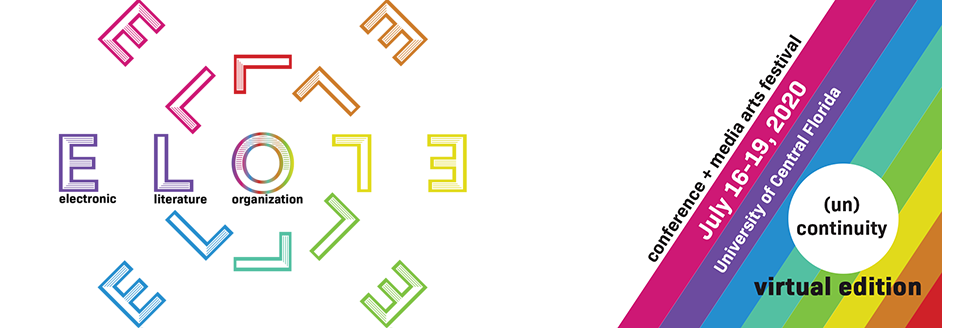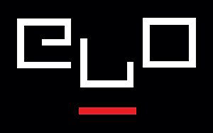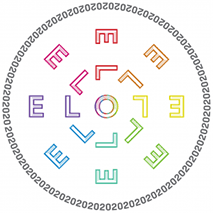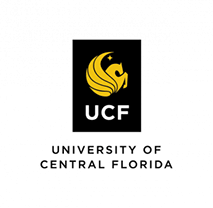Loading...
Submission Type
Virtual Engagement Session
Start Date
16-7-2020 9:00 AM
End Date
16-7-2020 11:00 AM
Abstract
This is a 2-hour online workshop where participants will explore live-electronic literature by using and transforming speech. This workshop will be taught in Estuary — an online platform for collaboration and learning through live coding that enables the creation of sound, music, and visuals in a web browser (https://estuary.mcmaster.ca/). Inside Estuary, participants will explore the live coding language TidalCycles (https://tidalcycles.org/) which allows the performer to play, transform, and modify patterns using sound samples.
By focusing on voice samples, TidalCycles patterns can function as a different way to approach speech. The voice samples for the workshop will be created by using lines of poetry, that can then be re-arranged and/or expanded by transforming patterns related to the position and duration of sounds. Other possible transformations include lowering or raising the pitch, moving the voices through the stereo field, and playing with space by modifying gain and feedback.
In this sense, live coding practices and tools are deployed in such a way that it can create an electronic literature speech performance, breaking distinctions between these two practices and art categories, hybridizing methods, and visual and audio representations.
The workshop will be divided into two parts. The first part will be focused on showing how to work with TidaCycles’ patterns using pre-recorded voice/poetry samples that will be ready to use in Estuary. The second part of the workshop will be dedicated to running a jam session among the participants.
Technical requirements for the participants:
No previous experience is needed. Participants will access the Estuary platform via the web (https://estuary.mcmaster.ca/), full information on how to log in will be provided during the workshop. There is no installation required but participants have to use one of the following browsers: google chrome, chromium, or opera*. Participants are encouraged to use headphones.
*Please note that other browsers such as Firefox will not work for this workshop.
Facilitators: Jessica Rodríguez, Alejandro Franco Briones, Alexander MacLean, Alex McLean, Luis Navarro, and David Ogborn
Electronic Literature + Live Coding Jam/Workshop
This is a 2-hour online workshop where participants will explore live-electronic literature by using and transforming speech. This workshop will be taught in Estuary — an online platform for collaboration and learning through live coding that enables the creation of sound, music, and visuals in a web browser (https://estuary.mcmaster.ca/). Inside Estuary, participants will explore the live coding language TidalCycles (https://tidalcycles.org/) which allows the performer to play, transform, and modify patterns using sound samples.
By focusing on voice samples, TidalCycles patterns can function as a different way to approach speech. The voice samples for the workshop will be created by using lines of poetry, that can then be re-arranged and/or expanded by transforming patterns related to the position and duration of sounds. Other possible transformations include lowering or raising the pitch, moving the voices through the stereo field, and playing with space by modifying gain and feedback.
In this sense, live coding practices and tools are deployed in such a way that it can create an electronic literature speech performance, breaking distinctions between these two practices and art categories, hybridizing methods, and visual and audio representations.
The workshop will be divided into two parts. The first part will be focused on showing how to work with TidaCycles’ patterns using pre-recorded voice/poetry samples that will be ready to use in Estuary. The second part of the workshop will be dedicated to running a jam session among the participants.
Technical requirements for the participants:
No previous experience is needed. Participants will access the Estuary platform via the web (https://estuary.mcmaster.ca/), full information on how to log in will be provided during the workshop. There is no installation required but participants have to use one of the following browsers: google chrome, chromium, or opera*. Participants are encouraged to use headphones.
*Please note that other browsers such as Firefox will not work for this workshop.
Facilitators: Jessica Rodríguez, Alejandro Franco Briones, Alexander MacLean, Alex McLean, Luis Navarro, and David Ogborn




Bio
Jessica A. Rodriguez: Mexico. Visual composer and researcher. Currently completing a Ph.D. She has a Master in Arts with work on music and visuals with new technologies. She is the co-founder of www.andamio.in, a collaboration platform where she developed performances, educational projects, and research papers. Her practical work has focused on collaboration with text, sound, and visuals.
Alejandro Franco's interests focus on experimenting with sonic phenomena in order to develop alternative ways to structure and perceive music/sound art. Two of the major focal points of his work are the development of rhythm oriented music and the interactions and the multilateral flow of information which occur between the composer, programmer, the code/score, the instrumentalists/performer, and the audience. By the act of listening, he attempts to make evident the interplay that occurs between the audible and the muted qualities of musical and sonic reality.
Alex MacLean / Monalex: musician, songwriter, audio/live sound engineer, and software developer from Northern Ontario. He has played in many bands over the years and told, even more, to turn their amps down on stage. His current band, Deepsea Challenger, is a progressive rock band based in Hamilton, ON that Alex sings, writes, and plays guitar for. He holds both a diploma in Music Industry Arts from Fanshawe College and a degree in Computer Science from Western University and has worked for several years as a DevOps and Cloud Engineer in the broadcast industry. More recently, as an MA candidate in Communication and New Media at McMaster University, he is investigating assistive applications of machine learning for the performing arts. http://www.alexmaclean.ca/
Luis N. is a Ph.D. Candidate in New Media and Cultural Studies at McMaster University. Since 2010 Luis’ work focuses on the construction of audiovisual pieces through programming languages and acoustic instruments. Luis is part of the live coding collective RGGTRN (Mexico), and the Cybernetic Orchestra (Canada), with which he has performed at venues in Canada, Mexico, Spain (2014, 2019), France (2014), the UK (2016), Colombia (2018), Peru (2018), and Ecuador (2018).
David Ogborn / dktr0: http://www.dktr0.net hacker, composer, artist programmer, live coding and guitar performer; lead developer of numerous software projects used in network music and live coding, including EspGrid, extramuros, Punctual, and Estuary; a founding member of the Cybernetic Orchestra; director of the Networked Imagination Laboratory http://nil.mcmaster.ca, and the Centre for Networked Media and Performance (CNMAP) at McMaster University http://cnmap.mcmaster.ca.
Alex McLean researches algorithmic patterns, in terms of ancient textile structures, contemporary programming languages, and music. McLean co-founded the TOPLAP and Algorave movements, bringing programming languages into concert halls, nightclubs and festivals and celebrating them as environments for human expression. He also created the popular free/open source TidalCycles environment for live coding algorithmic patterns. As a practitioner, McLean has performed widely over the past 20 years, including in the British Library and the Tate Modern, and major festivals including Glastonbury, Bluedot, No bounds, Sonar, Sonic Acts and STRP. He organized and curated hundreds of events across the digital arts, including co-founding the AlgoMech festival of Algorithmic and Mechanical Movement.